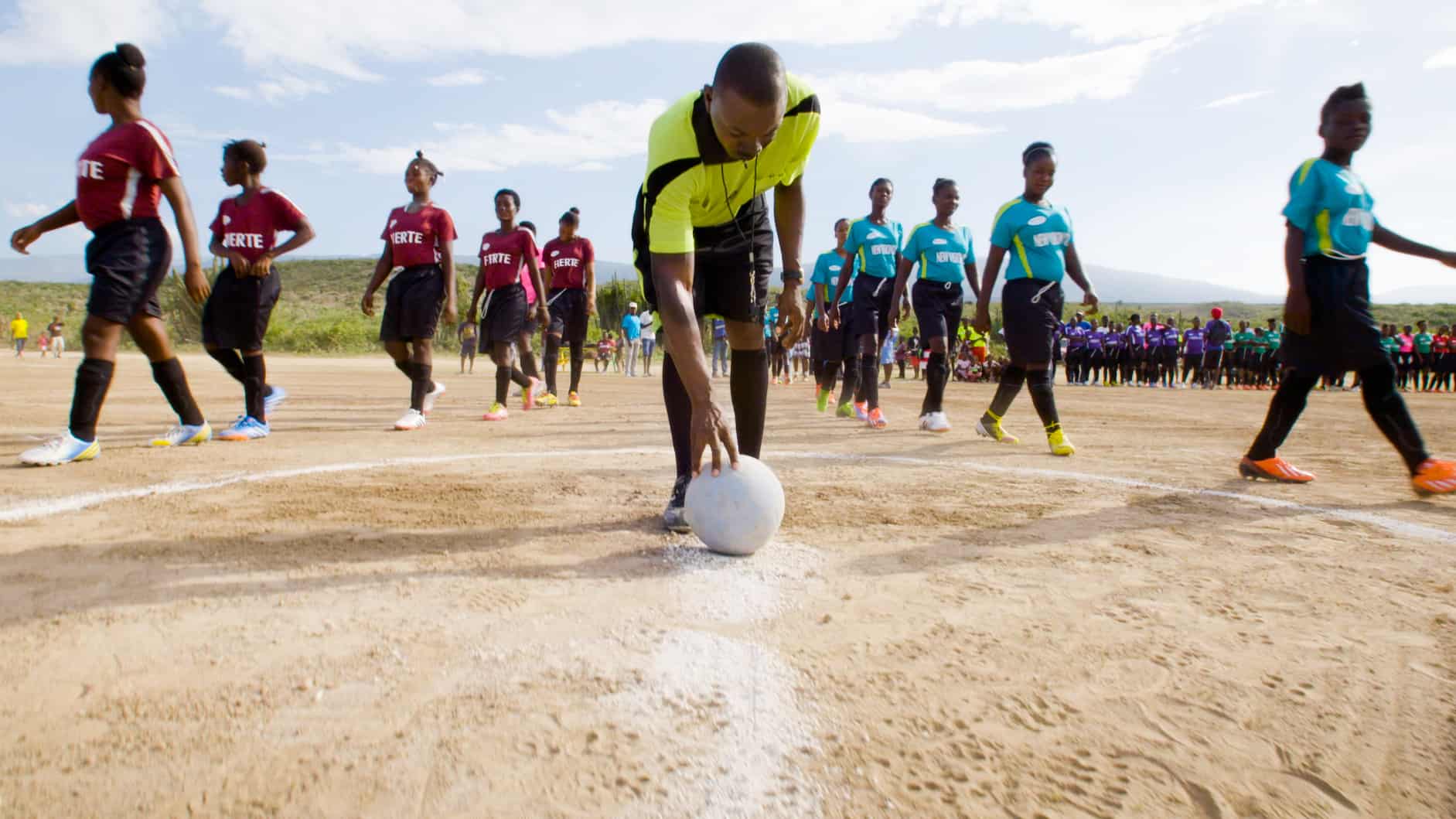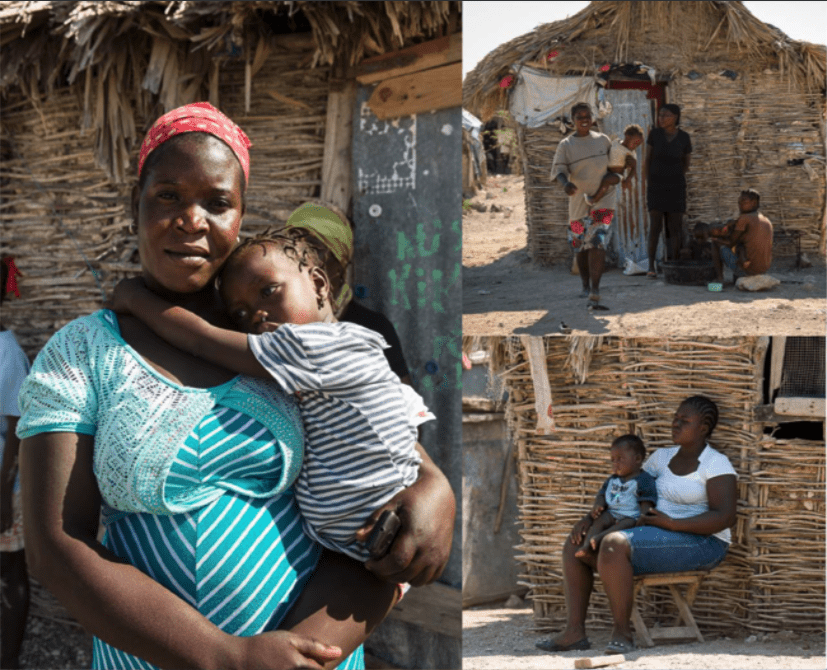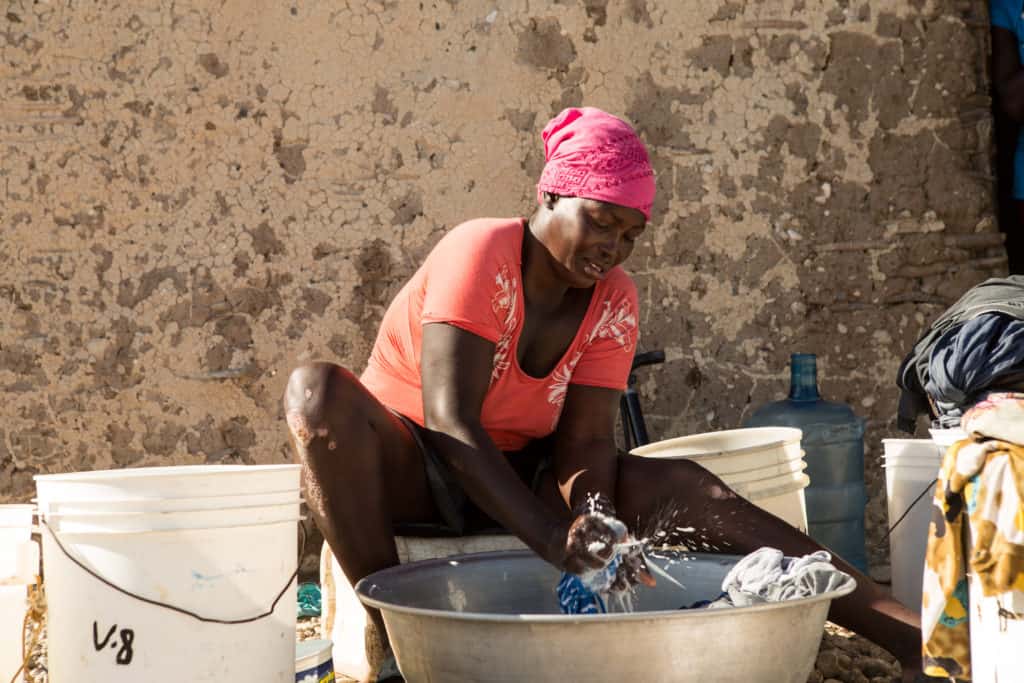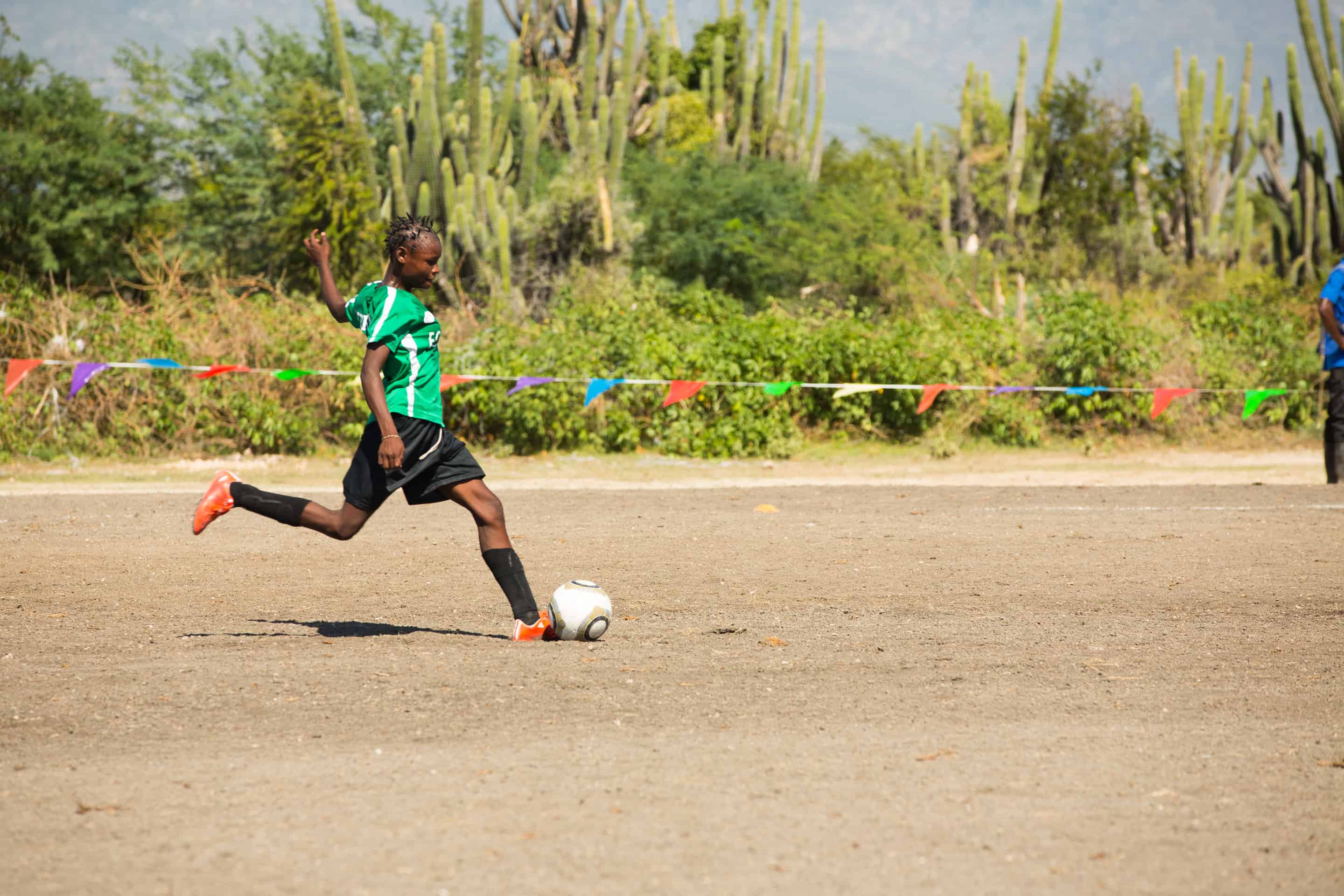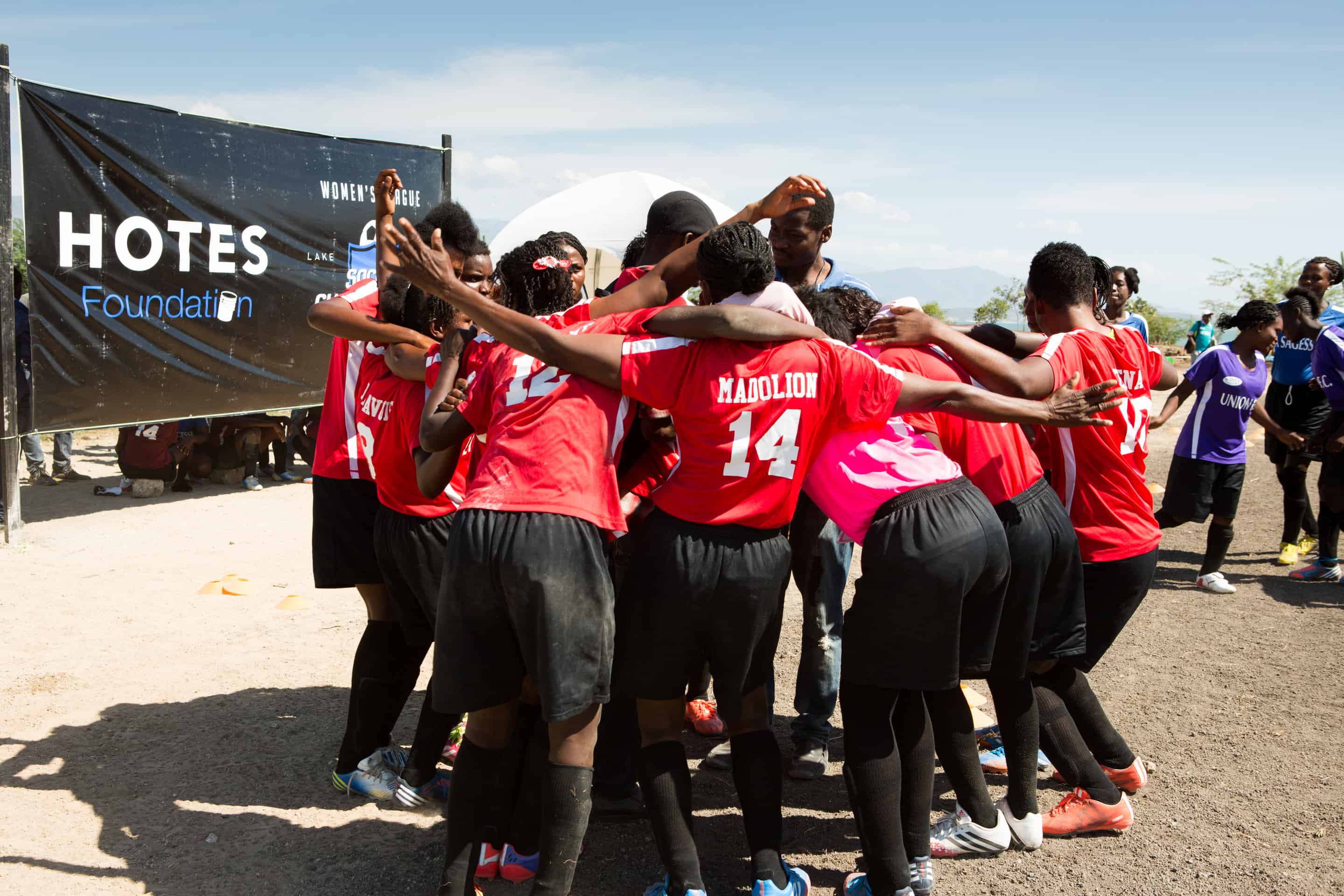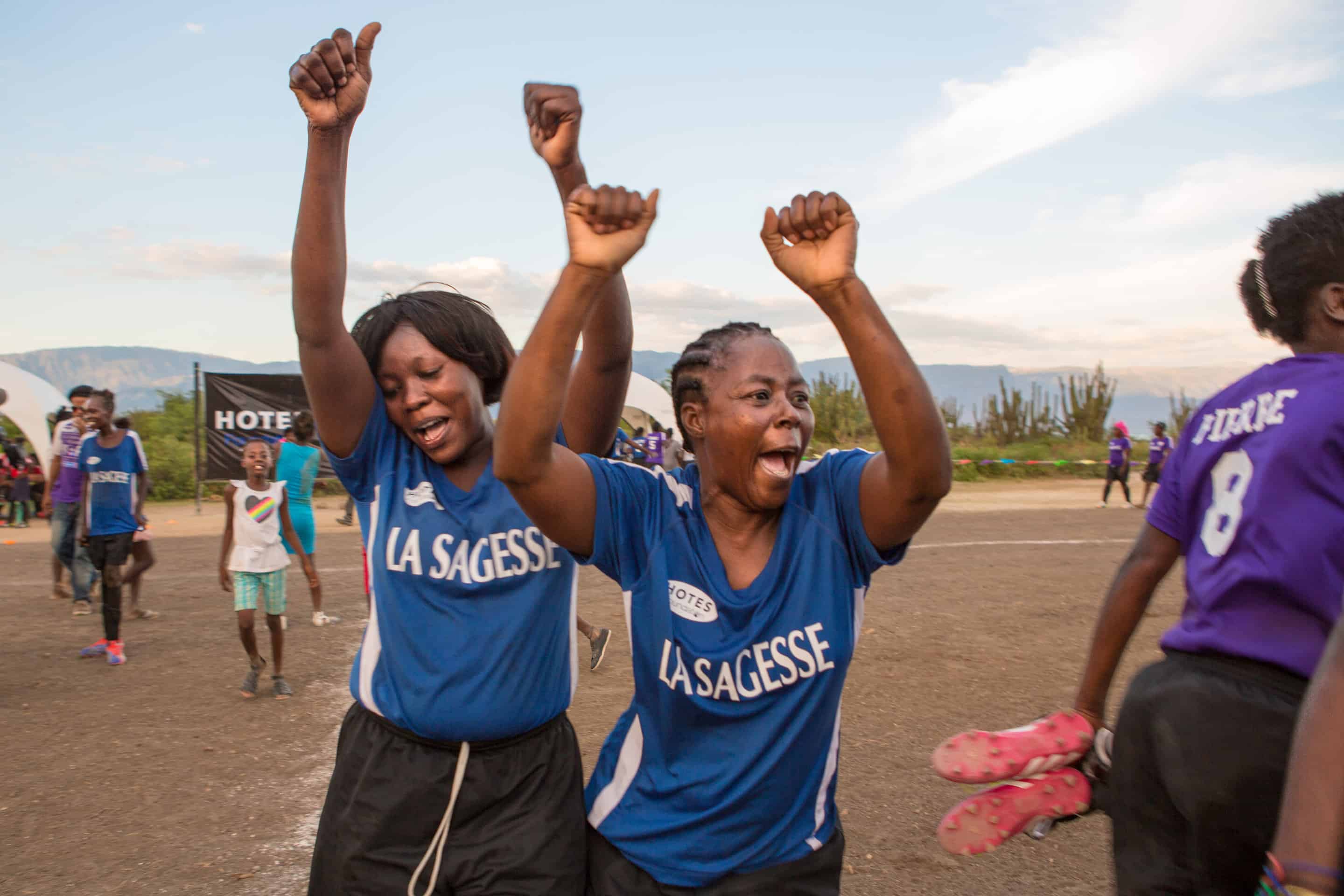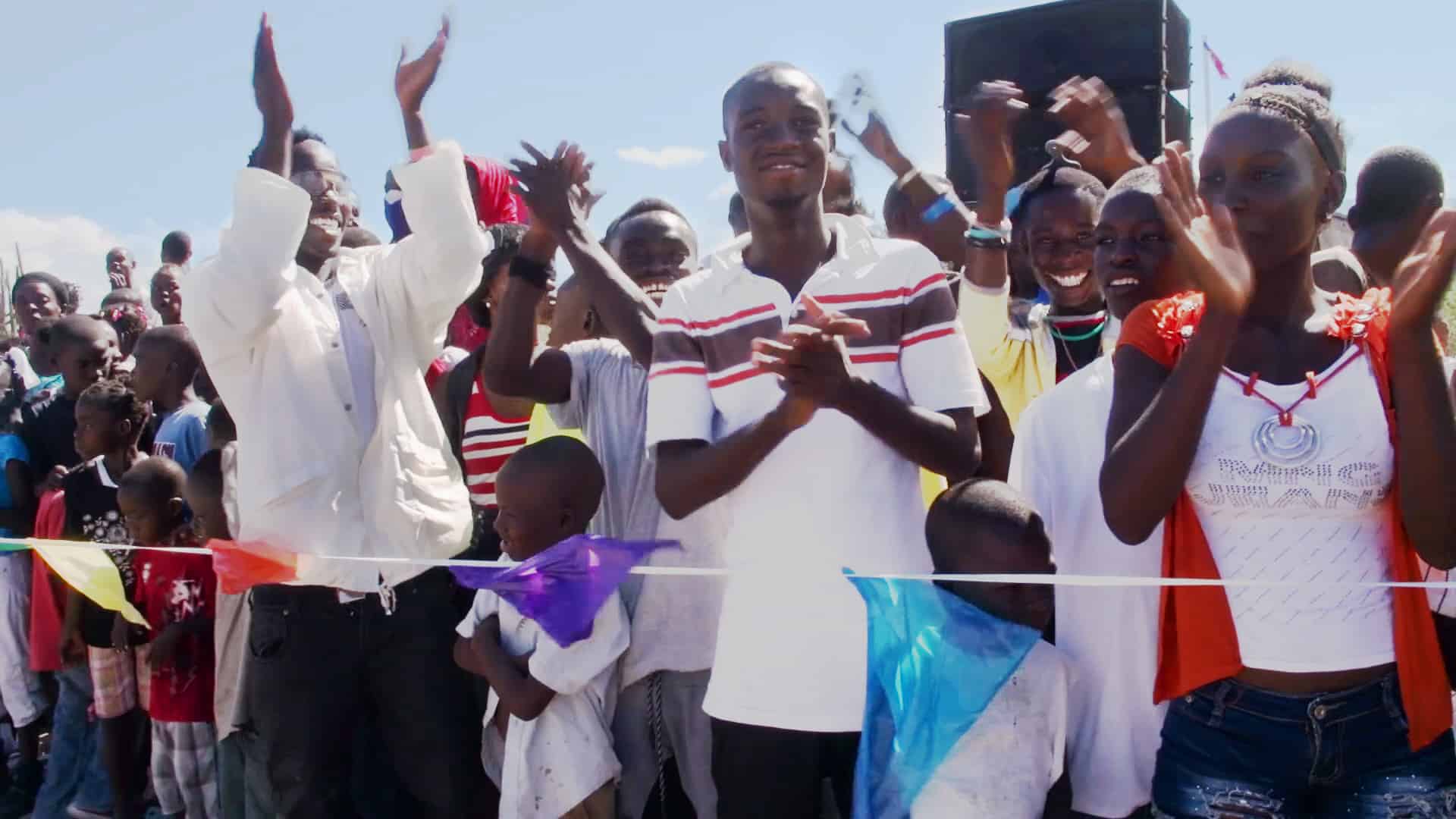The players of our Women’s Soccer League in Haiti are made up of the wives and mothers, sisters and daughters of Lake Azuei Village, an extremely poor mud-hut village about an hour outside of Port-Au-Prince Haiti. Before the Hotes Foundation came to this village, the female’s role was to take care of their home, their children, and to secure the food and water for the household. Without electricity, and miles away from a their primary water and food source their entire day was dedicated to providing for their family – and it was never enough. To make matters worse, the women were regular victims of verbal and physical abuse. “When I think about how my life was back then, I want to cry. I just thought it would never change” said Berlanda, a Hotes Foundation Soccer player and mother of two.
In summer of 2014, the Hotes Foundation implemented on-going programs focused on empowering these women. We provided jobs, a feeding program, vegetable garden, and daycare for the young children to attend, giving the women the opportunity to work and go to school.
One year later, the village was flourishing, but the women were still being treated poorly by their male counterparts. We needed to find a way to empower the women. We knew we would have to get creative if we wanted to raise the level of personal power and community power that the girls & women had in the village. In a nation where soccer is a male dominated sport we started an all women’s soccer league; where soccer is king we made it queen.
Since we kicked off the league in 2015 it has disrupted generations of cultural norms effecting the lives of both men and women in the region.



